Start of the school year brings 'newness and change' to Holland College, says instructor
Two instructors at Holland College in Charlottetown say they are still adjusting to what has been a very different start to the school year.
"September is usually a time in which we anticipate a lot of activity, a lot of stress, a lot of change and newness," said Shaun Patterson, a business administration instructor at Holland College.
"Now, because of COVID and a switch to online learning, we've added new layers of newness and change."
Completely online
The business administration program is completely online, with many instructors teaching from home.
Patterson is teaching his classes live, but also records and posts them online, so that students who are in a different time zone or working full time can still participate in the classes.
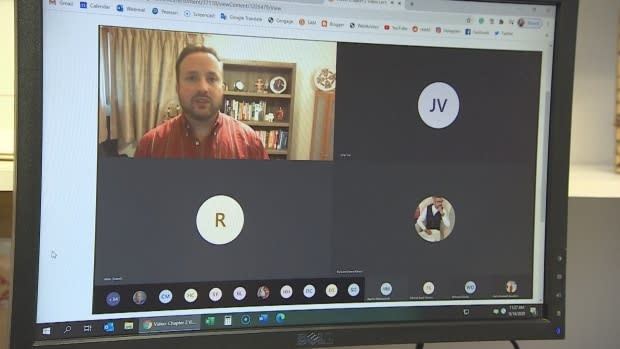
"It's a lot different, one of the things about teaching that I enjoy the most is being face to face with the students, getting to know them," Patterson said.
"That's kind of buffered a little bit when you have a distance and technology between you. It creates a challenge."
Easier for 2nd-year students
Patterson said the transition to online learning has been easier for the second-year students, because they experienced it for five weeks at the end of last semester, plus the instructors know the returning students.
Patterson said it has been more challenging for first-year students.
"First-year students, there is quite an extensive on-boarding process that we normally take with the students," Patterson said.
"So I would say that maybe tensions are a little bit higher than normal and this just means that we need to be, as instructors, more organized and have increased amounts of empathy."
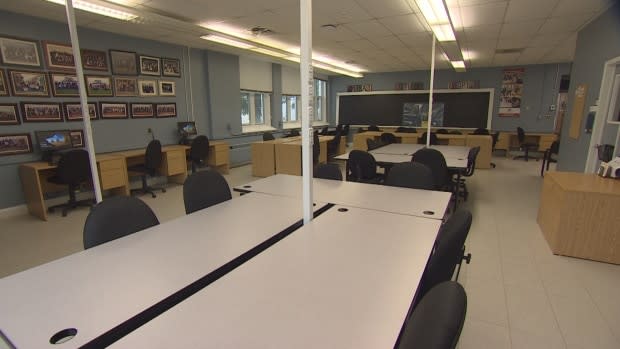
Patterson said he can feel the stress the pandemic is causing for some of his students.
"If you are a 19-year-old, you're entering into this new situation, maybe you're an international student," Patterson said.
"Maybe you're a student that is a primary caregiver in your family, or somebody that comes from a financially struggling situation. Definitely the stresses can be a lot higher."
Video optional
While Patterson appears on video during his classes, he makes that optional for his students.
"Some schools and some instructors require that their students have their camera on during a lecture as part of acknowledging an attendance," Patterson said.
"I understand that students may be going through a lot just to get to class and so if it's 9 a.m. and they're un-showered and have bedhead and have rolled over and put their laptop on … to show up to class, I'm happy that they're there."
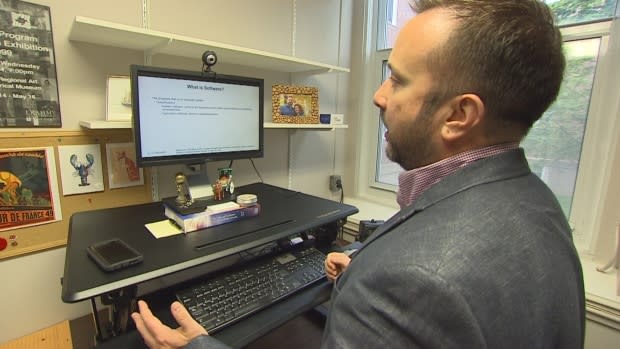
Patterson said the pandemic hasn't affected the number of students in the business program, which is full, but he doesn't know how COVID will affect the attrition rate.
"If a student is struggling and they're here, it's a lot easier to have that intervention and to say, 'Let's go over this work and I can help you figure it out,'" Patterson said.
"Sometimes if a student is suffering silently and they're behind a computer screen and you're reaching out and they don't reach out back, I think it may be easier for students to fall through the cracks. I think that's a big concern of mine this year."
'Lack of faces'
Things are different for Holland College instructors teaching in person, as well.
"Definitely the lack of faces. This lab, at this time last year, would be shoulder to shoulder," said Chris Arsenault, learning manager in the computer networking technology program.
"We can fit approximately 40 people in this lab at any one time and now we're going to be restricting it to 12."
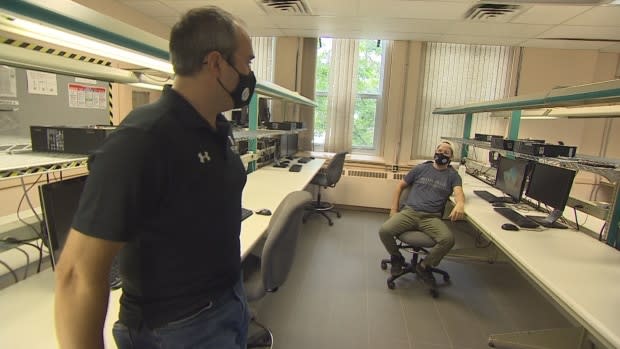
Arsenault said the computer networking technology program is a blended model, with 60 per cent online to start the semester, with theory classes online, as well as some virtual labs.
"It's easy to see a student sitting in class if they're engaged, if they're understanding," Arsenault said.
"When I'm speaking to a camera or to a screen in my basement or here in my office, I don't know. Are they listening, or are they understanding?"
Onus on students
Arsenault said the onus is also on students to make sure they are keeping up with the course material.
"Doing an online course, even blended models, take a lot more self-discipline and self-determination," Arsenault said.
"So I'm going to guess that we're going to have a higher attrition than normal."
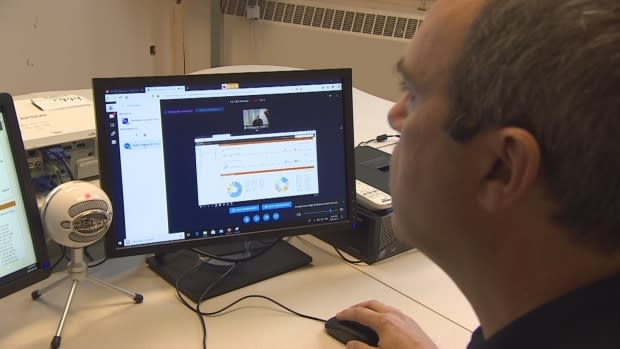
Arsenault said the pandemic did affect the on-the-job placements for students last spring, because everything was shut down and they had nowhere to send them.
But he is hopeful his students will find work despite COVID.
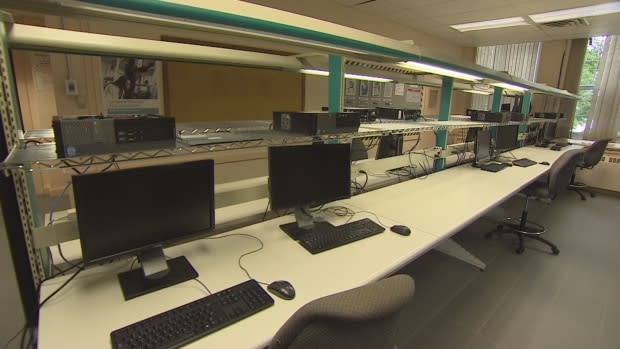
"We are still getting calls, multiple times a week, looking for graduates or hoping there will be graduates soon, and even potential part-time work for some of our current students," Arsenault said.
"So it really doesn't seem to have slowed down that way."
More from CBC P.E.I.


